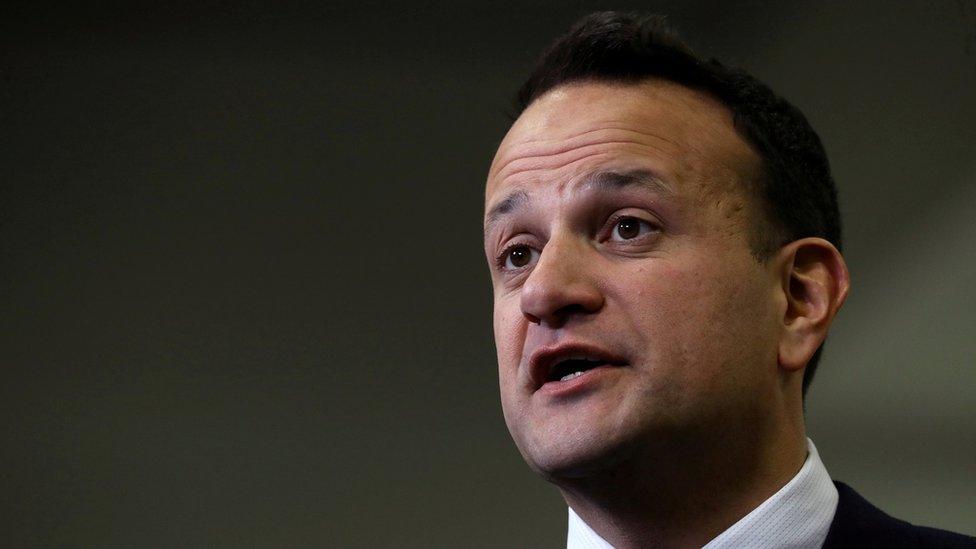Sinn Fein surge puts Irish economy in the spotlight
- Published
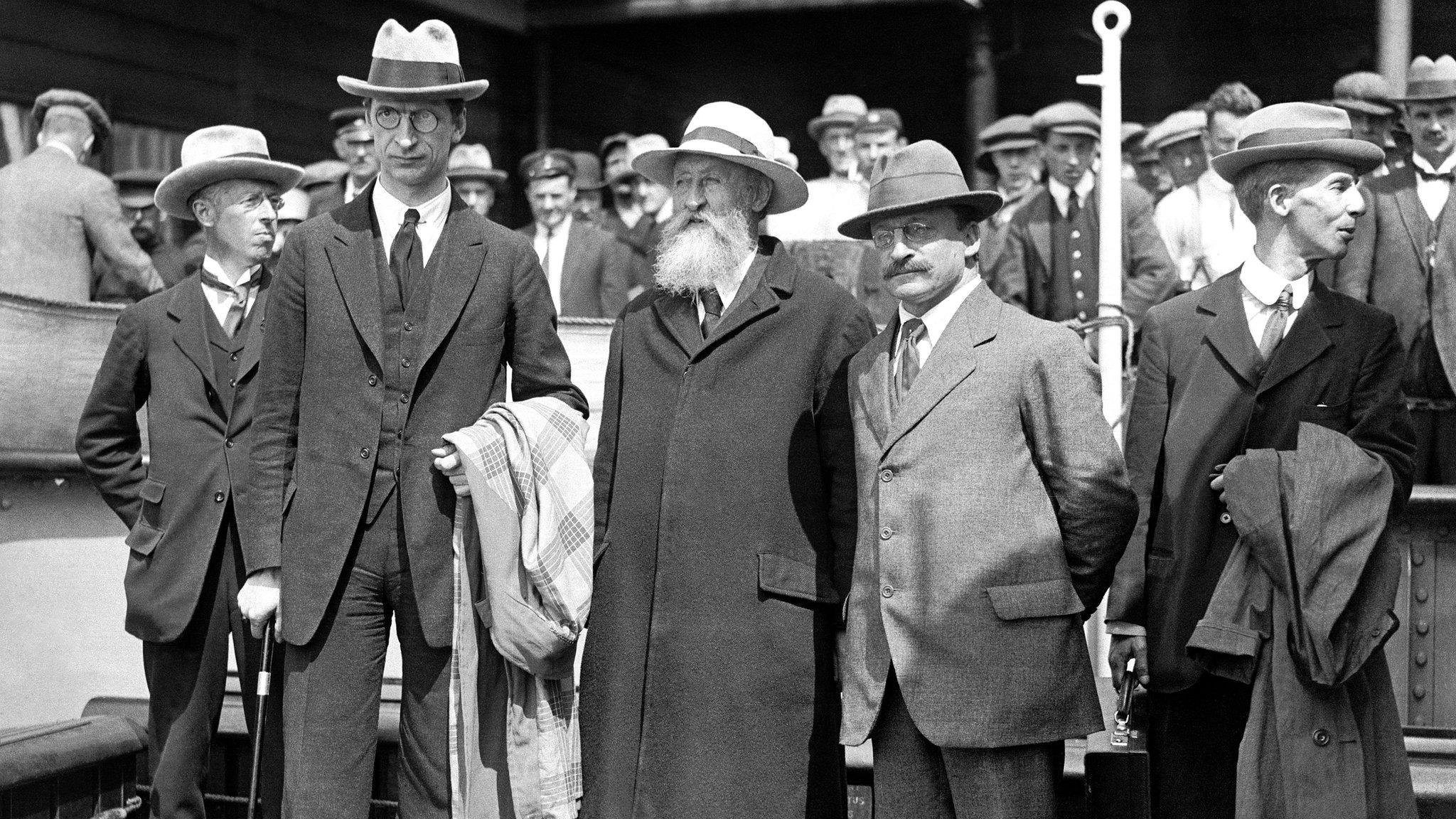
Former president Eamon de Valera (on the left holding a cane) did not envisage homeless families as part of Ireland's future
A former Irish President, Eamon de Valera, once famously outlined a vision for his country of "comely maidens dancing at the crossroads".
But fast forward to the 21st Century and it is the nation's politicians who are seeking a dance partner to form a government, with Ireland's economy at a crossroads.
The Dail, the parliament, meets in Dublin on Thursday with newly elected members ("TDs") convening to choose a Taoiseach, or prime minister, to lead a new government.
But there is more chance of finding a leprechaun's crock of gold than TDs agreeing on a new government, because this month's historic election finished with Sinn Fein gaining 24% of first preference votes, leaving no party with a majority.
This has broken the grip on power held for decades by Fianna Fail and Fine Gael - but both have refused to form a coalition with Sinn Fein, not just because of its historical links to the IRA, but because of its economic policies.
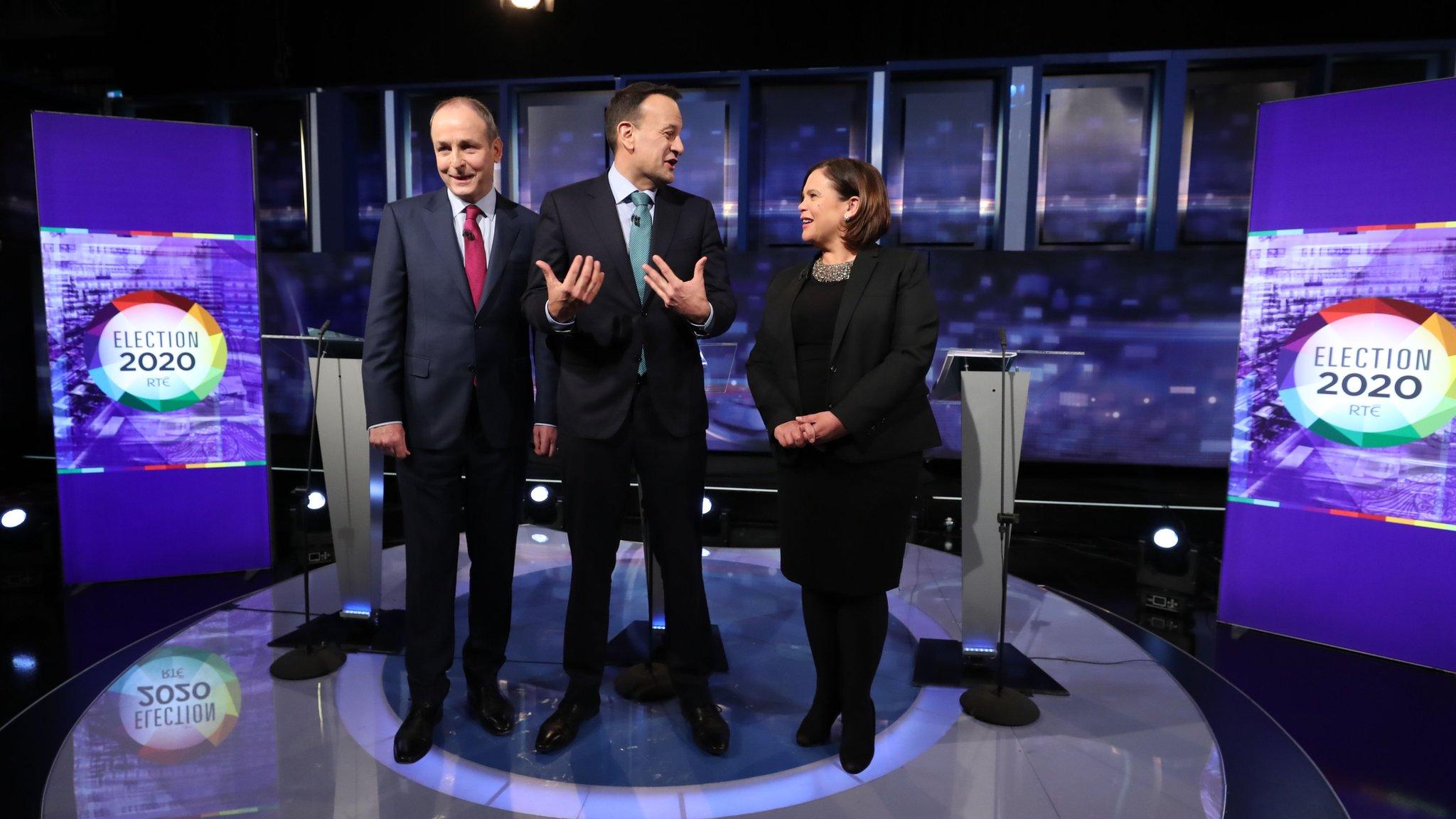
Fianna Fail's Micheal Martin, Fine Gael's Leo Varadkar and Sinn Fein's Mary Lou McDonald

Irish general election result
Fianna Fail: 38 seats
Sinn Fein: 37 seats
Fine Gael: 35 seats

Two main issues dominated the 8 February election - a healthcare system in chaos and the rising number of homeless people. These are not penniless vagrants, but ordinary working families unable to pay high rents.
Sinn Fein's promise to build 100,000 affordable homes over five years, including houses built by local councils, convinced voters to support the party, which is also a government partner in Northern Ireland.
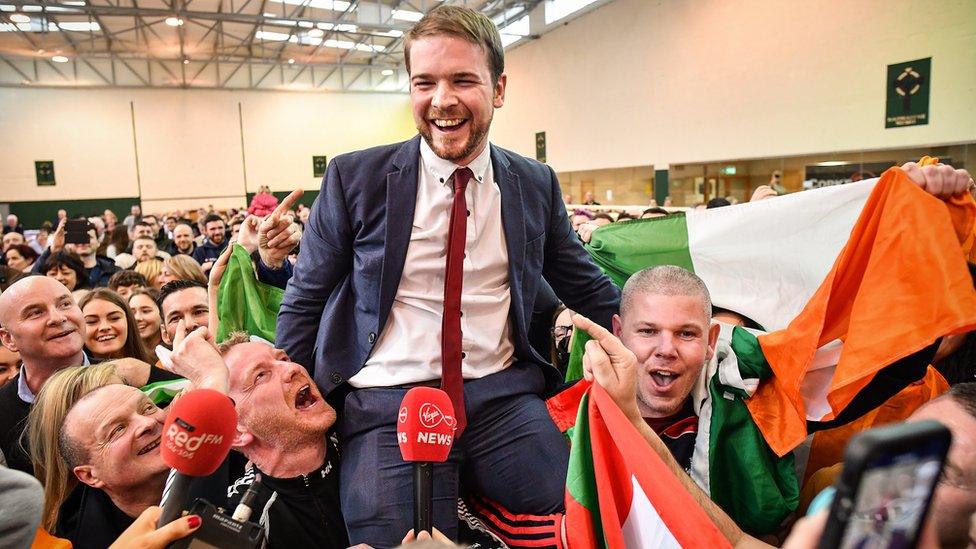
Sinn Fein TD Donnchadh Ó Laoghaire celebrating his election to the Dail
Sinn Fein's challenge is to persuade either Fianna Fail, led by Micheal Martin, or Fine Gael, led by current Taoiseach Leo Varadkar, to join them in a coalition, probably with another smaller party too.
But so far neither is interested and Mr Varadkar has even welcomed going into opposition.
"I actually think it's quite disgraceful that the old boys' club of Fianna Fail and Fine Gael believe that they can set aside the democratic mandate of Sinn Fein," says the party's president, Mary Lou McDonald.
Booming Irish economy
The shortage of affordable homes and the crisis in healthcare are hard to understand when you consider that the economy is booming, in a remarkable recovery, just a decade after the financial crisis.
Ireland avoided bankruptcy, thanks to a bailout of €85bn ($93bn, £71bn) from the European Union and International Monetary Fund, but the rescue killed off the so called Celtic Tiger economy.
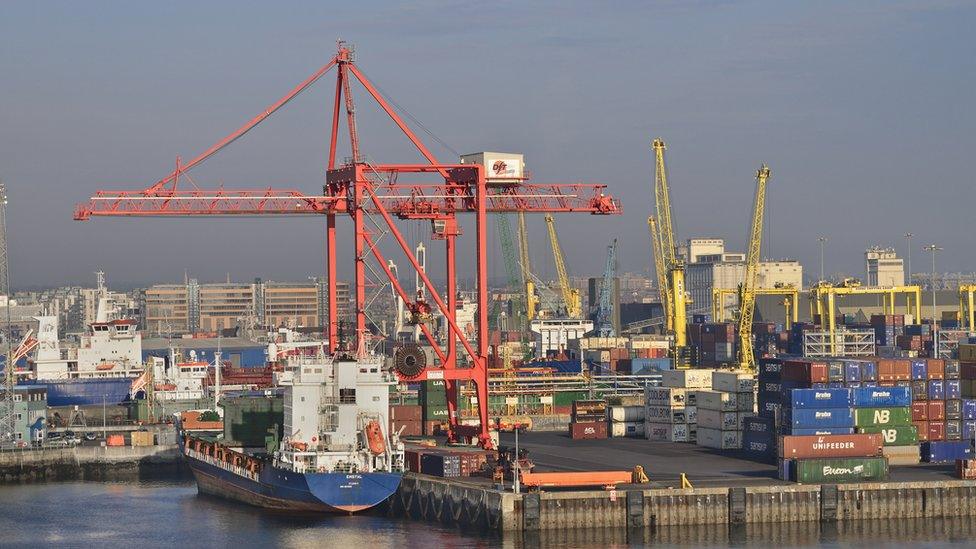
Dublin Port gets busier as the country's economy enjoys good growth
"The Irish economy is doing really well at the moment," says Austin Hughes, chief economist at KBC Bank Ireland.
"We've seen growth return very, very, strong. An improvement in jobs, a record number of people at work and unemployment back down to Celtic Tiger levels, currently running just under 5%, having peaked at 16% after the crisis."
But despite the "dramatic turnaround", he told BBC World Service the improvement had brought challenges in areas like health and housing.
Homeless families
Almost 10,000 people were registered homeless in December, many of them families living in hotels paid for by the state.
"That is the new phenomenon, that's only happened in the last seven or eight years, before that there was no such thing as homeless families," Father Peter McVerry explains.
The Catholic priest has helped homeless people for decades, with a foundation in Dublin that offers desperate people a place to stay,
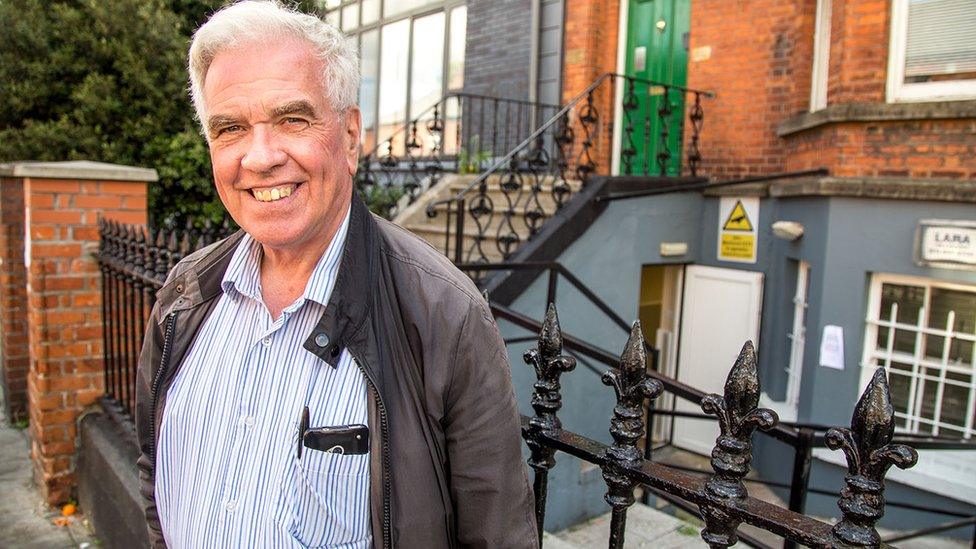
Father Peter McVerry, a campaigner for homeless people in Ireland, fears thousands of families cannot afford high rents.
"The majority of homeless people are being evicted from the private rented sector, for either of two reasons. The rent has shot to a level they cannot afford or the landlord is selling the house and says you have to get out."
Father McVerry bluntly told the BBC's World Business Report, "there are landlords who are in serious financial difficulties, about 12,000 with mortgages at least two years in arrears, but there are a lot of very greedy landlords.
"Some children are living in hotels for two years or more, it's seriously damaging."
Reminiscent of the Celtic Tiger economy years, there is a boom in construction and cranes are once again a common sight in Dublin.
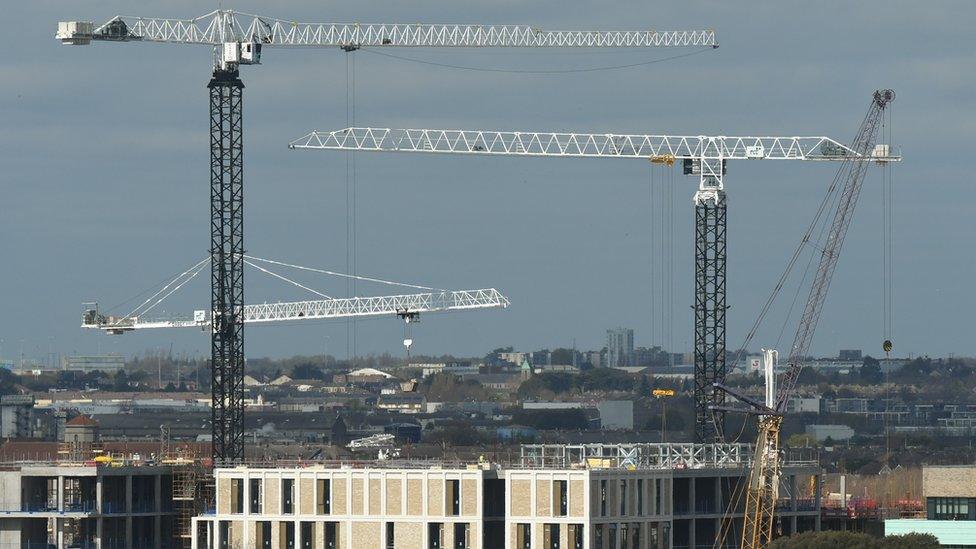
Cranes on the skyline of Dublin are a familiar site as the Irish economy powers ahead.
But can Ireland build 100,000 new affordable homes within five years as promised by Sinn Fein?
"In 2019 we reached 21,800 units. In 2020 the estimates are that we need a supply of 35,000 units and that's quite a substantial jump," says James Benson, director of housing planning at the Construction Industry Federation.
He says the main parties' election pledges on house-building were all a "little unrealistic". There is also a shortage of skilled labour.
"In the next five years we could need anything from 80,000 to 100,000 additional workforce to keep up with the demand," he says.
Brexit fears
Despite its strong growth, the economy also faces risks.
The UK's exit from the European Union is one threat, as recognised by Martin McElhinney, general manager of McElhinneys department store in Ballybofey, County Donegal, close to the Northern Ireland border.
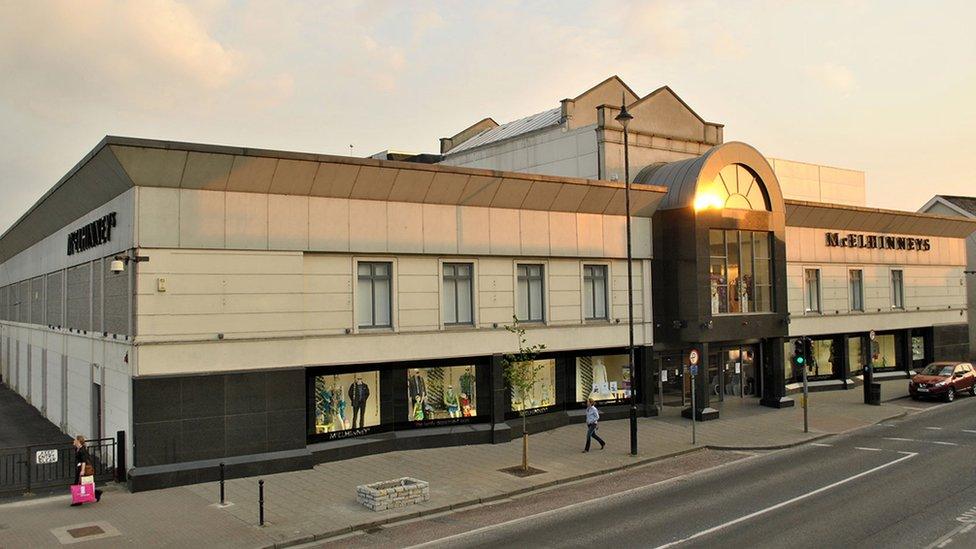
McElhinneys has been one of Ireland's retail successes
"Thirty per cent of my customers come from Northern Ireland, over 30% of my employees live in Northern Ireland. Any barriers to trade, or to movement, on that border will have a massive impact," he says.
Meanwhile, the country's growing technology sector could be hit by plans for a global digital services tax.
Tech giants like Apple, Facebook and Google have set up European bases in Ireland, in large part because of its low corporation tax rate of just 12%. This and other perks have benefited home-grown firms, too.
Gillian Doyle, boss of Cerebreon Technologies, in Ardara in the north west, says a sudden change in the rules would "definitely curb growth".
"The next government needs to be very careful," she says.
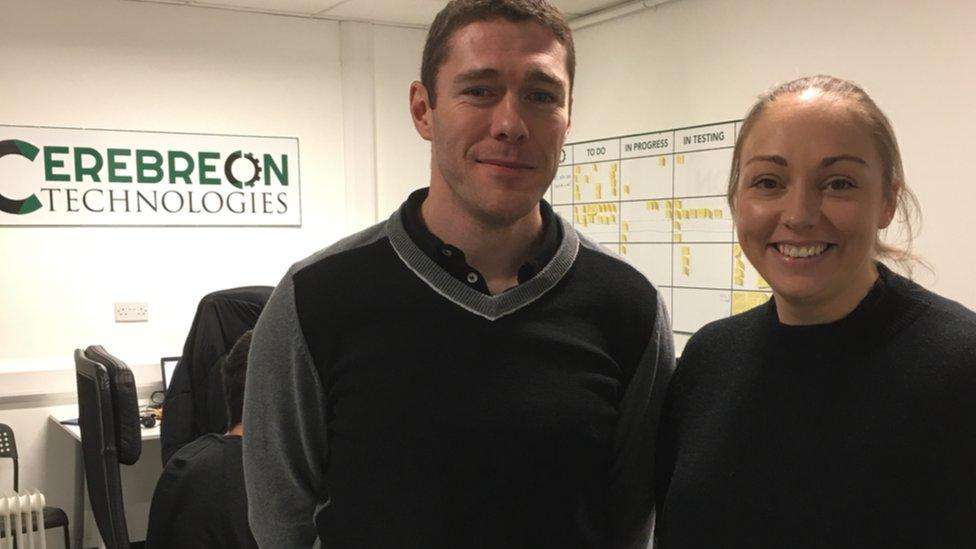
Gillian Doyle, with partner Kenneth Doherty, founded Cerebreon Technologies
The Irish people used the ballot box to send politicians a loud message, that their economic strategy has not benefited everybody. But it is unclear how the Dail will get around the current political impasse.
In 2016 the parties took 70 days to form a new government, so do not be surprised if Ireland takes just as long.
The modern Irish Republic was born from a rebellion in Easter 1916 against the British and in the aftermath the poet William Butler Yeats wrote some prophetic words, which may apply after Sinn Fein's election surge.
"All changed, changed utterly."
- Published19 February 2020
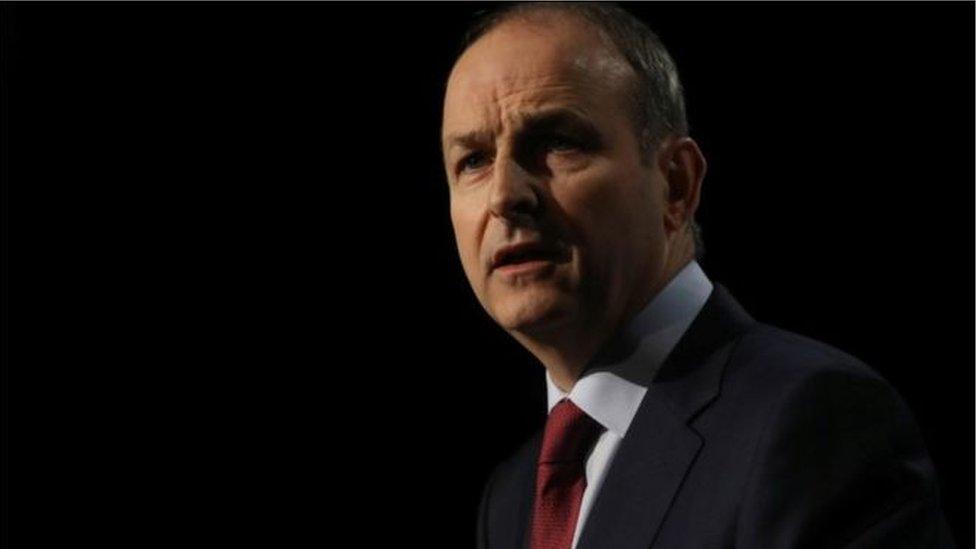
- Published17 February 2020
